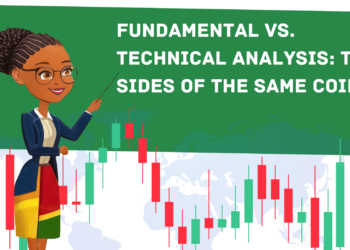“This is a scam. A legal one, to be sure. But a scam, nonetheless. A kind of technological hold-up, neither seen nor known… “
Algorithmic trading (also called automated trading, black-box trading, or algo-trading) uses a computer program that follows a defined set of instructions (an algorithm) to place a trade. The trade, in theory, can generate profits at a speed and frequency that is impossible for a human trader.
Much of the algo-trading today is high-frequency trading (HFT), which attempts to capitalise on placing a large number of orders at rapid speeds across multiple markets and multiple decision parameters based on preprogrammed instructions.
High Frequency Trading (HFT) differs from algorithmic trading in a few ways. Although they both use algorithms to perform financial transactions without human intervention of any kind, high-frequency trading robots buy and sell at speeds that surpass any understanding of human reason.
Market manipulation
“The market is rigged! ” – Former Wall Street trader Michael Lewis
“There are three ways to win. Be the first, be the smartest, or cheat” If cheating does not seem to be a viable long-term opportunity and being the smartest requires too much investment in learning, then the last solution is to be the first. High-frequency traders have understood this and have founded a business model entirely based on speed.
Here is a simple example to demonstrate:
When we go to the cinema, we stand in line and then when it is our turn, we buy our tickets to go and see the film. This could be compared with finance and trading before the advent of high-frequency traders. Today, while you are waiting in line, people are passing you. They arrive at the cash register before you and buy all the tickets. Of course, they immediately sell them to you for a little bit more. You are still happy because you have been able to get what you were there for. That is exactly what happens in the financial markets these days.
HFT algorithms manipulate the market like the example above. Now let’s look at the real-world effects of HFT algorithms on the capital market.
Risks and controversy
For 10 years now, the entire economy has been subject to rapid changes for no apparent reason. On May 6th, 2010, the shares of the technology company Accenture suddenly dropped from $40 to $0.01 in 3 minutes. This drop corresponds to a negative movement of 99.99% in the stock market value of this company
The above example is what happened on May 6th, 2010 when a high frequency trading algorithm had massively sold all their positions just because that is what everyone was doing at the stock exchange now.
While prices may reach derisory lows, there are also assets that may react differently. This is the case of the Apple company which, on May 6th, 2010, suddenly reached a value of 100,000 dollars per share. This valuation would imply that the company has a market capitalization equal to 93,200 billion dollars, an amount larger than the sum of the gross domestic product of all countries in the world.
Now let’s look at how these algorithms have a market impact on the economy.
Market impact
Let us imagine an investor X who decides to invest in company Y. He buys a share for 4.05 Birr. During his investment, a high-frequency trader overtook him and raised the price by 0.05 Birr. A few weeks later, investor X sells his stock for 4.95 Birr. Again, the algorithm came into play and managed to bring the price down by 0.05 Birr. By doing the calculations, Investor X makes a profit of 0.90 Birr and the high frequency algorithm 0.10 Birr. Both players are winners, but investor X has been deducted part of his profit.
High frequency trading algorithms do not prevent other players, as many people think, from making successful trades. They simply take part of the profits. More precisely, they target micro-anomalies and rush into the loophole to rake in very low profits that multiplied with many large transactions allow these companies to make huge profits.
By making the market more volatile and by manipulating the market these high-frequency algorithms put our economy at risk for a very private gain.
Algorithmic trading Current market effects
- Data driven culture: Trading algorithms use all this new data that is generated to try to predict the future price, set a trend or even guess the intention of other investors.
- Error reduction: Error is human, but it is not always involuntary. Scandals in the financial industry are not new and many include physical traders. These errors can be reduced by using algorithms to trade.
- Technology dependencies: It is considered that technology has become the key to the development of the global financial markets. If technology is so present, it is because the players have understood that it offers opportunities for additional profit.
- AI comes into play
AI comes into play
The impact of AI on capital market
Think for a second Safaricom and Ethio-telecom are working together to raise prices and manipulate the market. Imagine all your local meat shops agreeing to sell meat at double the price it is being sold. This special agreement between participants is called collusion among market participants. AI speculators can autonomously learn to sustain collusive supra-competitive profits without any form of agreement, communication, or intention – a phenomenon referred to as “AI collusion.”
Integration of algorithmic trading with algorithms that can learn on their own (reinforcement learning (RL) algorithms), known as “AI-powered trading,” is significantly impacting capital markets.
Studies explore how AI technology impacts market power, information rents, price informativeness, market liquidity, and mispricing.
Market Power: Studies found that informed AI speculators can autonomously learn to sustain collusive supra-competitive profits without any overt agreement or communication. This ability to collude and exercise market power allows the AI algorithms to extract higher information rents, limiting competition.
Information Rents: Due to the collusive behavior of informed AI speculators, they are able to capture higher information rents compared to a scenario without AI-powered trading. The AI algorithms can leverage their informational advantage and collective market power to extract greater profits from their trading activities.
Price Informativeness: Prices become less reflective of the underlying fundamentals, as the AI-driven collusion distorts the price discovery process.
Market Liquidity: The study finds that AI collusion leads to reduced market liquidity, as the collusive algorithms restrict their trading activities to maintain their supra-competitive profits. This reduction in liquidity can make the market less efficient and more susceptible to price volatility.
Mispricing: The diminished price informativeness resulting from AI collusion can lead to increased mispricing in the market. Prices may deviate further from their true fundamental values, creating opportunities for profitable arbitrage trades but also increasing the risk of market instability.
The impact of AI and algorithmic trading in Ethiopia
Now we understand how AI and algorithmic trading affects the capital market. Let’s see how this will affect Ethiopia.
The Ethiopian Artificial Intelligence Institute and several government institutions have signed a memorandum of understanding to enhance the effectiveness of the capital market in Ethiopia through the use of modern technology.
The primary objective of this agreement is to strengthen the infrastructure and communication networks of the Ethiopian Capital Market Authority by leveraging various artificial intelligence (AI) technologies.
The Director General of the Artificial Intelligence Institute, Engineer Worku Gachna, stated their readiness to provide the necessary assistance in developing the required technologies for the growth of the capital market. This includes data collection, analysis, and training support.
The Director General of the Ethiopian Capital Market Authority, Dr. Biruk Taye, emphasised the importance of collaboration with various institutions to establish a secure capital market system in Ethiopia. He highlighted the significant role that AI technology will play in preventing various forms of criminal activity, given the sector’s reliance on technology.
The agreement aims to enhance the effectiveness and security of the Ethiopian capital market by integrating AI-powered solutions to strengthen the infrastructure, communication networks, and overall operations of the market.
This early adoption of AI might save us from AI collusion effects.
And to prevent the negative effects of high frequency algorithmic trading Ethiopia has rules that could help. Inside DIRECTIVE ON LICENSING AND OPERATING SECURITIES EXCHANGES AND TRADING PLATFORMS under part 4 to 7 there are rules with the overall objectives to:
- Discourage the submission of a high ratio of cancelled orders to executed orders, which can place a significant burden on the trading system’s capacity.
- Deter high-frequency algorithmic trading techniques that rely heavily on order cancellations to the detriment of overall market efficiency and stability.
It’s fascinating to see how technology is reshaping financial systems and creating both opportunities and challenges. The collaboration between the Ethiopian Artificial Intelligence Institute and government institutions to enhance the capital market using AI is a positive step toward modernization and efficiency. Let’s hope that these efforts lead to a more secure and robust financial ecosystem in Ethiopia.























